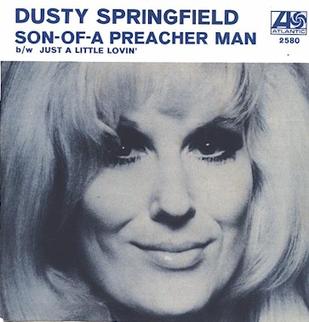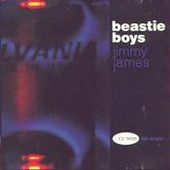Song: "Repeater"
Album: Repeater
Year: 1990
CLICK HERE TO LISTEN (will open in new tab)
Out of all of the countless styles of music that have come and gone over the decades, there may not be any other that has earned as inaccurate a reputation as that which still is used when speaking of "hardcore" music. Those not familiar with the genre often write it off as little more than shapeless noise created by substandard musicians. However, as is the case with nearly every style of music, there are a number of bands that fit this stereotype that in many ways "spoil" it for the rest of the groups. Yet constantly standing as a foil to these bad examples, there are the groups that began the "hardcore revolution," as well as those who helped to develop the sound and move it forward. Somehow managing to occupy both of these positions, there is perhaps no musical figure of the 1980's that was more important than the Godfather of "DIY" and hardcore himself, Ian MacKaye. Though one could easily make the case that his work with Minor Threat alone would have been enough to make him an icon, he proved to be nothing short of a musical genius when he expanded his own musical vision, as well as the scope of the hardcore sound within the confines of his equally legendary band, Fugazi. Without question a band that many held as close to their heart as any band in history, Fugazi brought some of the most high-energy, original, and intelligent music that has ever been created, and few bands have equaled their overall talent since. While there are a number of the bands' songs that remain classics of the genre, few better define the band than the title track from their monumental 1990 album, Repeater.
The moment "Repeater" begins, it has an unsettling, almost nervous mood to it, as the bass of Joe Lally seems to almost moan around the strict cadence of the guitar playing of Ian MacKaye and Guy Picciotto. The speedy drums of Brenden Canty offer a fantastic finishing touch to the overall sound, and yet it is far more about how the musicians interact with one another as opposed to their individual performances that defines the extraordinary sound and mood found on "Repeater." Truth be told, there are few pairings from any genre in history that even come close to the amazing performance and chemistry found between Lally and Canty, and they are perhaps the greatest rhythm section in music history. On "Repeater," Lally plays with such fury and power that when you listen closely, you can actually hear just how hard he is hitting his bass. The pair often seem as if they are "chasing" one anothers progression, and their playing was surely the key to setting off the crowds at Fugazi's legendary live performances. Similarly, the staggered, screaming guitar noises found on the track present a fantastic contrast and make "Repeater" sound like nothing else previously recorded. The controlled, yet chaotic fury of guitar noise that leads into the songs' final phrasing is nothing short of stunning, and also serves as an example of how to get to the edge of disorder, yet keep the musicality intact. Overall, the song is an amazing example of organized musical anarchy, and it is all the "proof" one needs to understand just how much talented lived within these four musicians.
While the music found throughout the Repeater album can be seen as "post" hardcore music, it often takes a backseat to the brutal lyrics of MacKaye and the shared vocals of him and Picciotto. However, on "Repeater," the vocals are almost exclusively performed by MacKaye, and the "doubled" style with which they were recorded remains one of the most awe-inspiring moments in music history. As was the case with the rest of the Fugazi catalog, MacKye takes a completely unsubtle and direct approach to the lyrics, almost "attacking" the listener with the aggression in his voice. The urgency in his voice makes it impossible to ignore his words, and this was one of the other keys to the overall greatness of Fugazi. Among other things, throughout their career, Fugazi made a name for themselves as a band that, if nothing less, was exceptionally serious, and their hard-hitting, unrelenting social criticisms within their lyrics drove this point home on a regular basis. Though they often attacked ideas of failed government, greed, and the pitfalls of capitalism, "Repeater" speaks to a far different subject, and is one of their darker songs. In truth, "Repeater" is a play on the word on many levels, but at its core, the song concerns the overwhelming amount of gun violence that occurred throughout the 1980's in the Washington, DC area. MacKaye takes on both the issue itself, as well as sensationalist reporting when he roars, "...did you hear something outside? It sounded like a gun...stay away from that window boy, it's not anyone we know...only about ourselves and what we read in the paper..." He then finishes the phrasing off with the brilliant, yet profound statement of, "... don't you know ink washes out easier than blood..." Both in what he is saying, as well as how he delivers the words, Ian MacKaye's performance on "Repeater" remains one of the most captivating vocal performances ever recorded.
Constantly innovating and refusing to settle for the status quo on many levels, there are few bands that pushed their particular genre forward as much as one finds within the music of Fugazi. Taking the hardcore style that he largely founded and pushing it into a new era, Ian MacKaye may very well be the only musician who created both the initial sound as well as the "post" sound related to the original style. This serves as a testament to his uncanny musical talent and vision, yet one cannot deny that the other three players who made up Fugazi were equally instrumental in the execution of this second sound. Creating grooves that were as deep as they were frantic, the rhythm section of Joe Lally and Brenden Canty remains largely unrivaled, and it is this aspect of the music that makes their songs so unforgettable and surely "set off" countless crowds. Bringing what was often called "sonic guitar terrorism," the screaming and shrieking of MacKaye and Guy Piccotto helped to highlight the bands' ability to stand on the edge of musical chaos, creating a sound that often defied description. All of these elements are on brilliant display on the title track of Fugazi's 1990's album, Repeater, and both the song and record remain the high-water mark for the post-hardcore sound. Spinning his "DIY" ethos into everything he did, MacKaye drives the basis for his lifestyle into the listeners' ears with the simple phrasing of, "...but we don't have to try it...and we don't have to buy it..." Hitting hard from all angles, there are few songs that bring the forcefully mesmerizing lyrics and pure musical fury that one finds in Fugazi's colossal 1990 song, "Repeater."













